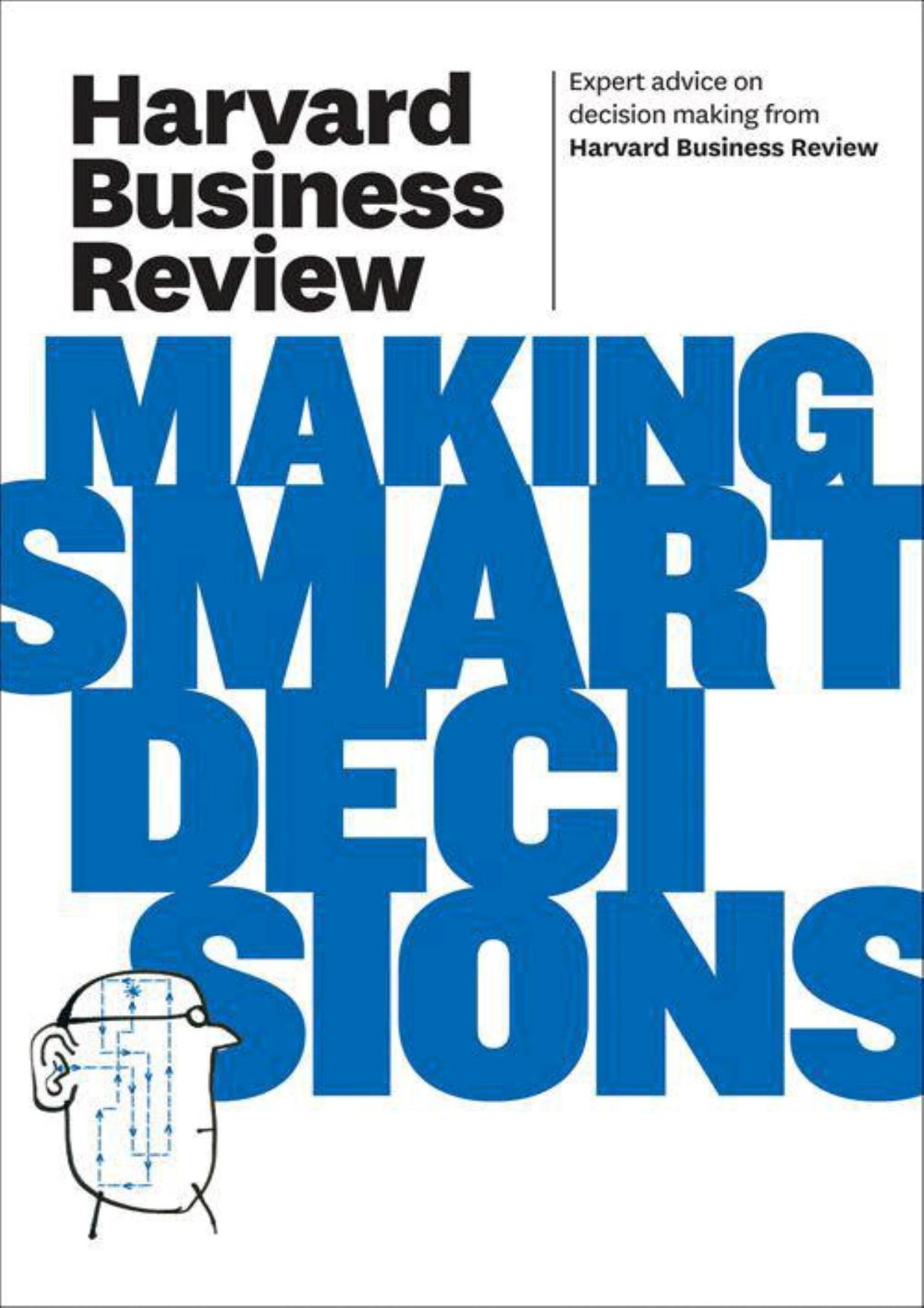Harvard Business Review on Making Smart Decisions by Harvard Business Review

Author:Harvard Business Review
Language: eng
Format: epub, pdf
Publisher: Harvard Business Press
Published: 2011-02-24T06:00:00+00:00
* * *
Structuring the debate
By breaking a decision-making body into two subgroups, leaders can often create an environment in which people feel more comfortable engaging in debate. Scholars recommend two techniques in particular, which we call the “point-counterpoint” and “intellectual watchdog” approaches. The first three steps are the same for both techniques:
* * *
First, adroit leaders pay careful attention to the way issues are framed, as well as to the language used during discussions. They preface contradictory remarks or questions with phrases that remove some of the personal sting (“Your arguments make good sense, but let me play devil’s advocate for a moment”). They also set ground rules about language, insisting that team members avoid words and behavior that trigger defensiveness. For instance, in the U.S. Army’s after-action reviews, conducted immediately after missions to identify mistakes so they can be avoided next time, facilitators make a point of saying, “We don’t use the ‘b’ word, and we don’t use the ‘f’ word. We don’t place blame, and we don’t find fault.”
Second, leaders can help people step back from their preestablished positions by breaking up natural coalitions and assigning people to tasks on some basis other than traditional loyalties. At a leading aerospace company, one business unit president had to deal with two powerful coalitions within his organization during a critical decision about entering into a strategic alliance. When he set up two groups to consider alternative alliance partners, he interspersed the groups with members of each coalition, forcing people with different interests to work with one another. He then asked both groups to evaluate the same wide range of options using different criteria (such as technological capability, manufacturing prowess, or project management skills). The two groups then shared their evaluations and worked together to select the best partner. Because nobody had complete information, they were forced to listen closely to one another.
Third, leaders can shift individuals out of well-grooved patterns, where vested interests are highest. They can, for example, ask team members to research and argue for a position they did not endorse during initial discussions. Similarly, they can assign team members to play functional or managerial roles different from their own, such as asking an operations executive to take the marketing view or asking a lower-level employee to assume the CEO’s strategic perspective.
Finally, leaders can ask participants locked in debate to revisit key facts and assumptions and gather more information. Often, people become so focused on the differences between opposing positions that they reach a stalemate. Emotional conflict soon follows. Asking people to examine underlying presumptions can defuse the tension and set the team back on track. For instance, at Enron, when people disagree strongly about whether or not to apply their trading skills to a new commodity or market, senior executives quickly refocus the discussion on characteristics of industry structure and assumptions about market size and customer preferences. People quickly recognize areas of agreement, discover precisely how and why they disagree, and then focus their debate on specific issues.
Download
Harvard Business Review on Making Smart Decisions by Harvard Business Review.pdf
This site does not store any files on its server. We only index and link to content provided by other sites. Please contact the content providers to delete copyright contents if any and email us, we'll remove relevant links or contents immediately.
Hit Refresh by Satya Nadella(9132)
The Compound Effect by Darren Hardy(8965)
Change Your Questions, Change Your Life by Marilee Adams(7780)
Nudge - Improving Decisions about Health, Wealth, and Happiness by Thaler Sunstein(7706)
The Black Swan by Nassim Nicholas Taleb(7128)
Deep Work by Cal Newport(7082)
Rich Dad Poor Dad by Robert T. Kiyosaki(6632)
Daring Greatly by Brene Brown(6512)
Principles: Life and Work by Ray Dalio(6445)
Playing to Win_ How Strategy Really Works by A.G. Lafley & Roger L. Martin(6300)
Man-made Catastrophes and Risk Information Concealment by Dmitry Chernov & Didier Sornette(6019)
Big Magic: Creative Living Beyond Fear by Elizabeth Gilbert(5771)
Digital Minimalism by Cal Newport;(5764)
The Myth of the Strong Leader by Archie Brown(5507)
The Slight Edge by Jeff Olson(5417)
Discipline Equals Freedom by Jocko Willink(5389)
The Motivation Myth by Jeff Haden(5212)
The Laws of Human Nature by Robert Greene(5208)
Stone's Rules by Roger Stone(5087)
